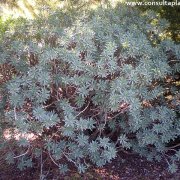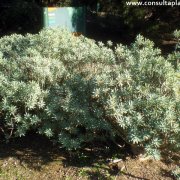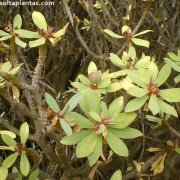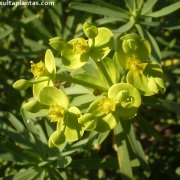Care of the succulent plant Euphorbia balsamifera or Balsam spurge |
|
The genus Euphorbia, family Euphorbiaceae, includes 2,000 species of succulents, trees, shrubs, and herbaceous plants of cosmopolitan distribution. Common name: Balsam spurge. This species is native to the Canary Islands and North Africa. They are curious bushy plants with a thick-gray stem that can reach 1 meter (3.28 feet) in height. The fleshy and large lanceolate leaves (grayish green) are arranged in a rosette at the end of the stems. They produce small yellow flowers. Balsam spurge is used to form bushy groups, as isolated specimens in the garden, in pots for terraces, as a houseplant and even as bonsai. It's ideal for coastal gardens due to its resistance to wind and salinity. Euphorbia balsamifera needs a sunny exposure (in light shade if the summers are very hot). The temperature should not be less than 10º C (50 ºF). In regions with cold winters it is advisable to grow it in pots and to keep them indoors. The soil can be a mixture of 2 parts of sand, one of leaf mulch, and one of peat. The transplant is done in early autumn. Water moderately, waiting for the substrate to dry. Keep in mind that the rest period is in spring and summer; water enough so that the soil does not dry out completely. Fertilize with organic matter in autumn. Balsam spurge is a low maintenance plant that does not need pruning. Euphorbia balsamifera can be attacked by mealybugs and, if there is excess watering, by fungi. Balsam spurge propagates by seeds or cuttings in late summer being very careful with the irritating latex of these plants. |
Images of the succulent plant Euphorbia balsamifera or Balsam spurge |
Find plants
Euphorbia balsamifera or Balsam spurge | Care and Growing
© 2026 FavThemes



